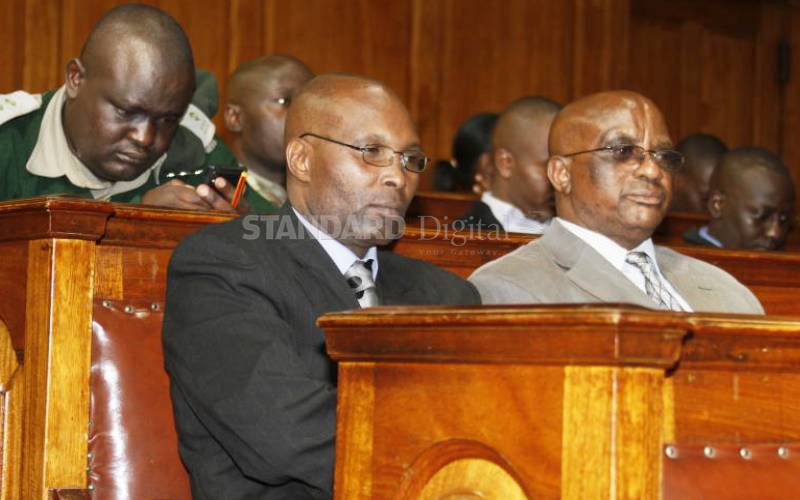×
The Standard e-Paper
Smart Minds Choose Us

Convicts Wilson Thirimbu Mwangi (left) and Francis Mwangi Muruatetu. [File, Standard]
Two murder convicts who first successfully challenged the constitutionality of the mandatory death sentence have been saved after the High Court reduced their sentences.